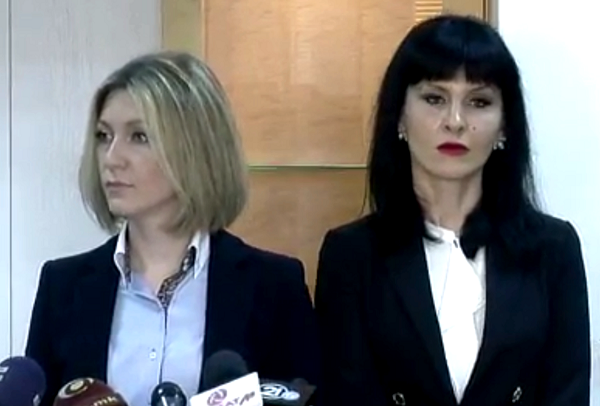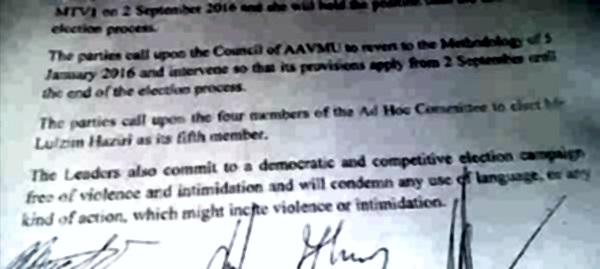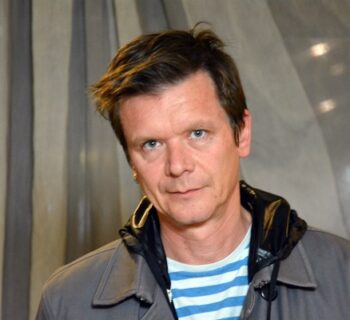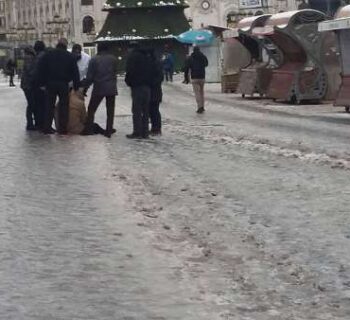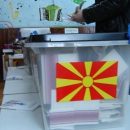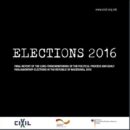Will Macedonia hold elections in December this year is the main question that needs to be answered by the four biggest political parties – signatories to the Agreement for overcoming the political crisis in Republic of Macedonia.
The Macedonian public expect solutions that should put an end to the uncertainty and to the political crisis. The international community, which is mediating the implementation of the Przino Agreement, is also expecting solutions.
But, what will the outcome be? Will there be elections on December 11, or will the electoral calculations continue? And what are the perspectives?
Even the political experts are reluctant to predict what the outcome will be from tomorrow’s leader’s meeting.
“I believe that we are heading towards elections in December, but this is still not 100 percent sure. If they reach an agreement, then there will be elections, and if they do not reach an agreement then there’s the question of what will happen with the Special Prosecutor’s Office. I think that a postponement of elections to which VMRO-DPMNE would insist on would be related to some “disarray” that they would perform in connection to the status and needs of the SPO. Macedonia is not a democratic country and we are trying here to raise the standards higher, in order to have as much as possible fair elections. But, we will not have fair elections, because important elements for fair elections just cannot be corrected until December. However, we as a society and as a political system have been brought to a situation of accepting even partial solutions, in order to somehow prevent the further sinking of the system and the abuses. Therefore, we will not have fair elections, but I do hope that by December we will have conditions for as much as possible fair elections”, assesses political analyst Dr. Saso Ordanoski.
The epilogue of tomorrow’s leader’s meeting is also uncertain for the legal experts, if one takes into consideration all the obscurities and phases the Przino Agreement has went through.
“Certainly, the date of the elections represents a serious chance for overcoming the political crisis. However, taking advantage of this, probably, last chance, again and again (like everything else in the past decade) will depend mostly on how the biggest ruling party acts and on the extent to which this party is prepared to overcome the political crisis.
In that context, in a muggy atmosphere of politicization of the public administration, of identifying the party with the state, with controlled media, state and judicial authorities and all, literally all of the participants in the elections will have to work and act in accordance to the Constitution, the laws, and even to the moral norms. If not, holding the announced elections as fair and democratic will be just another illusion and just another missed opportunity for overcoming the political crisis”, considers legal expert Sandra Gavrilovska.
The assessments of professionals in the media sphere are that not even the ad-hoc body (which even with today’s withdrawal of Daut Dauti as a candidate for the fifth member is still not completed, a day before the leader’s meeting), nor the appointment of the chief editor of the public broadcasting service MTV at the proposal of the opposition will provide balanced pre-election coverage. Otherwise, today there were rumors that Santa Argirova will be performing this function during elections.
“With the mild sanctions and the methodology that is focused on the balance, and not on the quality of informing (the right to an informed choice is most important in this context, but one that is insufficiently addressed), with only partially addressing the subtle forms of favoritism or stigmatization that govern media, the ad-hoc body will stand very small chances to impose itself as a “judge” in our media jungle. Chances are much greater for it to end up as a body for “legitimizing” the credibility of the elections from a media perspective. However, despite the limiting “playing field”, this body can achieve more – if it demonstrates integrity, does not succumb to party interests; if it communicates much more often and more intensively with the citizens and the media than what is usual for state institutions; if it makes attempts to educate; if it truly works for the citizens and the public interest. Whether things will turn out this way, despite the limitations, will depend primarily on the personal capacities and integrity of the members of this body”, analyzes Petrit Saracini, journalist and citizen activist, one of the candidates for the fifth member of the ad-hoc body for media.
In fact, it is actually the citizens, the “ordinary” people on whose backs fall all the abuses of power that are expecting the epilogue of tomorrow’s outcome the most. The Macedonia public, the civil society organizations and associations, the vanguard youth and the intellectual Macedonian core that solidarized to the Colorful Revolution and sought justice on the streets, sent messages for an uncompromising restoration of democracy in the country. But, what is the position of civil society precisely today, a day before the final decision?
“The civil society in Macedonia has no choice. It is constantly being shoved to the margins of society, and their share in the decision-making process is equal to zero. Nevertheless, civil society has showed vitality and integrity in the past two years and has managed to assert itself as a factor. Although it is not directly involved in the decision-making processes, it expressed its opinion on the streets, something that every politician that sits on the negotiating chair is practically forced to take into consideration, or to at least calculate with the voice of the street. When I say civil society, I certainly mean all forms of civil associations and actions, and not only of associations of citizens”, says Xhabir Deralla, President of CIVIL-Center for Freedom.
The clock is ticking!
Моnika Таleska
 Македонски
Македонски Shqip
Shqip English
English




